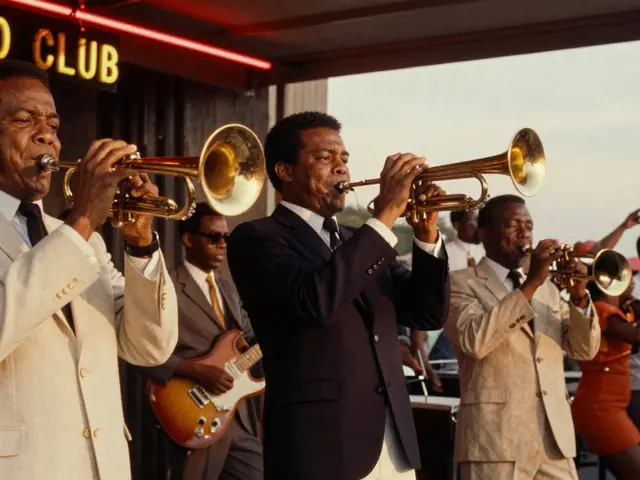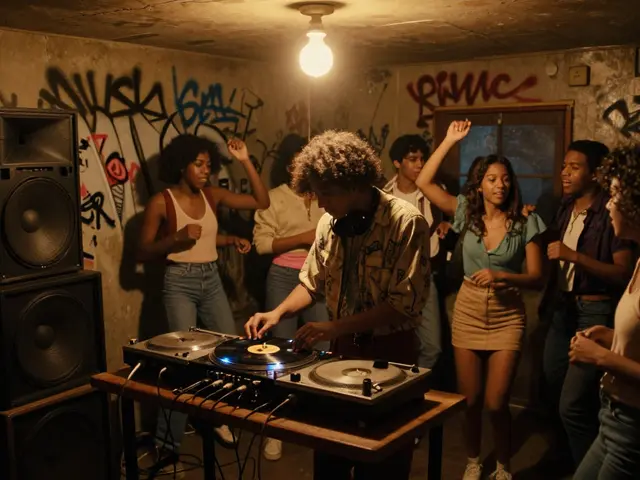The Rise of Hip Hop: A Cultural Revolution
Hip hop music, once a niche genre deeply rooted in African American urban culture, has spectacularly risen to dominate the music charts worldwide. This genre, characterized by its rhythmic beats and often candid lyrical content, has not only influenced music but also fashion, language, and lifestyle, echoing its comprehensive cultural impact. The journey of hip hop from block parties in the Bronx to global concerts highlights a dynamic shift in musical appetites and the democratization of music production and distribution facilitated by technological advancements.
The 1980s and 1990s saw hip hop clawing its way into the cultural mainstream, with artists like Tupac Shakur, The Notorious B.I.G., and groups like N.W.A. and Public Enemy not only telling stories of life in America's inner cities but also addressing socio-political issues, thus resonating with a broader audience. This period was pivotal as it set the foundation for hip hop's longevity and relevance.
Fast forward to today, hip hop has grown in influence and reach, with streaming platforms and social media catalyzing its ascent. Artists like Drake, Kendrick Lamar, and Cardi B often outperform traditional pop artists on charts, signaling a change in listener preferences. Hip hop's adaptability and the honesty in its narrative perhaps make it more relatable to today's audience, thereby contributing to its sustained popularity.
Mainstream Acceptance and Evolution
As hip hop's audience widened, its sound and role within the music industry evolved. No longer confined to specific urban areas or communities, it began assimilating various musical styles, incorporating elements from genres as diverse as rock, jazz, and even classical music. This fusion not only enriched hip hop's appeal but also made it more accessible to an international audience, further solidifying its place at the top of the music hierarchy.
Recognition from prestigious awarding bodies like the Grammy Awards, where hip hop artists have gained nominations and wins in major categories, underscores its undeniable influence and acceptance. With hits that consistently dominate the Billboard charts, hip hop has proven its capacity to reach and resonate with a global audience, seamlessly integrating into the pop culture lexicon. It's a powerful platform for artists to discuss pertinent issues, making it a significant cultural and social conduit.
Technology, too, has played a crucial role in hip hop's dominance. The advent of the internet, social media, and music streaming services has revolutionized how music is shared and consumed. These platforms have given hip hop artists a wider stage and direct access to fans, irrespective of geographical barriers, intensifying its global appeal and presence in popular culture.
The Generational Impact of Hip Hop
Hip hop is not just music; it's a vibrant culture that speaks to the youths around the world. Its impact extends beyond music, influencing fashion, language, and lifestyle, especially among the younger demographics. Major brands and companies, recognizing hip hop's sway among these consumers, frequently collaborate with artists to market their products, further evidence of hip hop's pervasive influence.
This generational influence also reveals shifts in societal standards and values. Today's youth often resonate with the authenticity and rawness of hip hop, which reflects their own experiences and challenges, making it more than just background music. It's a form of expression and, for many, a tool for social change, encapsulating the energy and challenges of current generations.
Additionally, hip hop has contributed to the dialogue around important social issues, including racial inequality, poverty, and injustice, with many artists using their platform to influence public opinion and policy. This social consciousness inherent in many hip hop lyrics deepens its impact, making it a voice for those often unheard in mainstream media.
Global Influence and Future Directions
Finally, the global influence of hip hop cannot be overstated. It has crossed cultural and national boundaries, resonating with audiences worldwide. Countries like South Korea, France, and South Africa have developed their unique hip hop scenes, blending local cultural elements with the traditional hip hop formula. This localization of hip hop is a testament to its versatility and global appeal.
Looking to the future, hip hop's trajectory remains prominently upward. As new technologies and platforms emerge, they will likely further democratize music production and distribution, keeping hip hop at the forefront of the cultural conversation. Its continual evolution, relevance, and adaptability suggest that hip hop will shape the music industry for years to come.
The story of hip hop is far from over. As it intertwines more deeply with technology and global culture, its potential to influence and inspire is limitless. Understanding this dynamic genre's path helps us appreciate not just the music but also the vibrant culture it represents—a culture that has redefined what popular music can be.






